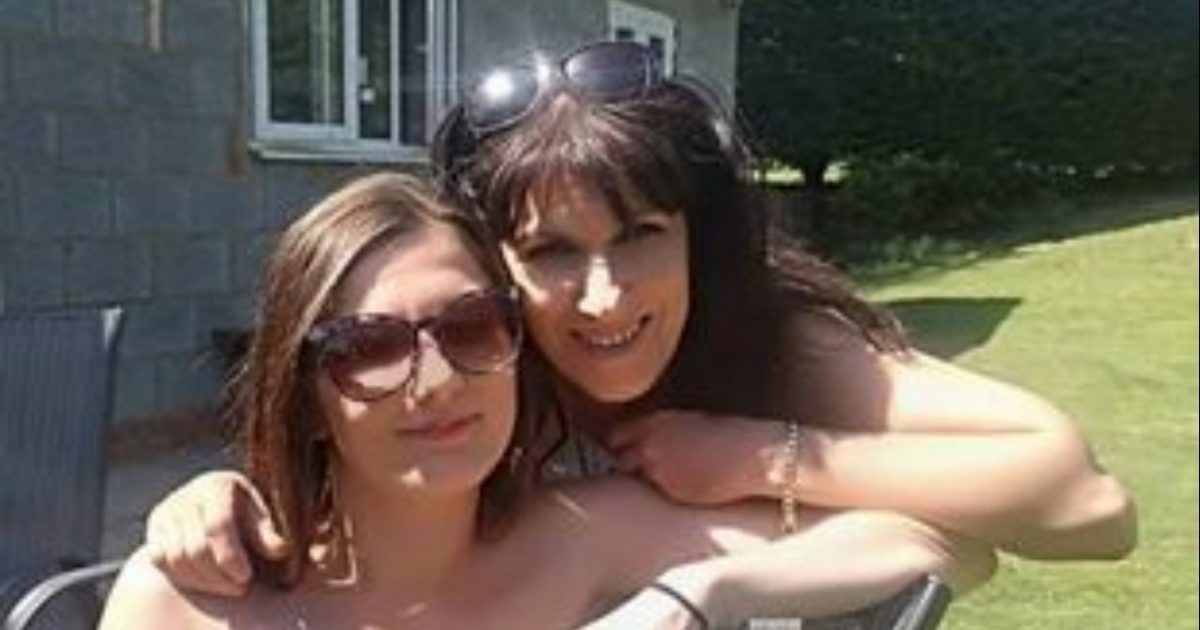A Mother's Brave Bile Duct Cancer Battle
- When Maria Barry’s hands began to itch in March 202, she thought a new cleaning product was the cause, but after three inconclusive biopsies, she learned she had rare bile duct cancer.
- Bile duct cancer, also called cholangiocarcinoma, is a rare type of cancer that starts in the bile ducts, which are thin tubes that go from the liver to the small intestine. Bile is a fluid that helps digest the fats in food. Approximately 8,000 people in the U.S. are diagnosed with this type of cancer every year.
- Barry and her family are fully engaged in her cancer battle and are currently raising enough money for a new gene therapy treatment that Barry said has improved her quality of living.
The 58-year-old first began experiencing the symptoms in March, 2020. Until then, the mother of three was always healthy, except for having her gallbladder removed due to gallstones a few years prior.
Read More“Nothing seemed to work and I was eventually referred to a dermatologist," she said. “It took a while to see them and, even then, they were suggesting new medication to try.”
“I just knew something was wrong. It had been months of trying different solutions and nothing had worked. Something had to be seriously wrong so I demanded a CT scan.”
It wasn’t until Christmas Eve in 2021 that Barry would learn what was really wrong with her. She was summoned to the hospital to hear her results.
Her children Nico, 32, Luca, 30 and Nadia, 27 came along to support her.
“The news just completely shocked me. The doctors suspected I had a rare cancer and would need to undergo a biopsy," she said. “I was devastated and it completely ruined our Christmas. The entire time, I just kept worrying about what was to come.”
Three biopsies proved to be inconclusive, but on the fourth one "they confirmed they had found something malignant," said Barry.
“It was so rare that the doctors said they needed to run further tests to find out what type of cancer it was.”
What Is Bile Duct Cancer?
Bile duct cancer, also called cholangiocarcinoma, is a rare type of cancer that starts in the bile ducts, which are thin tubes that go from the liver to the small intestine. Bile is a fluid that helps digest the fats in food. Approximately 8,000 people in the U.S. are diagnosed with this type of cancer every year, according to the American Cancer Society (ACS). This disease has a higher incidence in Southeast Asia, due to an infection that can lead to bile duct cancer. Patients with PSC, like Payton, have an increased risk of cancer including cholangiocarcinoma.
While it can occur in younger people, bile duct cancer is typically found in older adults, above the age of 70. This type of cancer may be treated with surgery, chemotherapy and radiation. The side effects of this kind of treatment may include nausea, hair loss, fatigue, and nerve pain. Thankfully, some of these side effects can now be mitigated.
Remaining Hopeful For The Future
In Barry’s case, by the time of her diagnosis, the cancer had spread to her liver.
“Doctors confirmed I had a 9 centimeter mass known as intrahepatic cholangiocarcinoma and I was offered chemotherapy which started in May," she said. “I was so fatigued and sick that the doctors decided to put me on chemo rest, which I'm still on at the minute, because it was getting to the point where I thought the chemo was going to kill me.”
Unfortunately, her prognosis was bleak as doctor’s told her she only had three to six months to live. But her daughter Nadia began doing research and found a clinical trial for a new gene therapy technique. However, by the time they reached out, the trial was over. The family rallied to raise funds for the treatment, which costs almost $20,000 per month and managed to get enough donations for a month’s worth of pills, which Barry takes twice daily.
Stay Positive, It Matters
“I was in constant pain and feeling sick after having chemo. I've recently started on the medication and, while it's too soon to tell yet, I'm hoping it will improve my quality of life," she said. “I wish there were other options but this is the only chance I have to live so we're fundraising at the moment. We managed to raise enough money for July's medication and we've nearly reached our target for next month's, but what are we going to do after that?"
But Barry’s daughter Nadia said she knows her mom is a fighter who will have the chance to meet her future grandchildren.
“Whenever I tell people that my mum has bile duct cancer they always say they've never heard of it and that was how we felt when we first found out," she said. “We want to raise awareness so that more people know about it and know the signs to look out for. My mum is young, her kids all still live at home and she's not ready to die yet.”
Learn more about SurvivorNet's rigorous medical review process.


